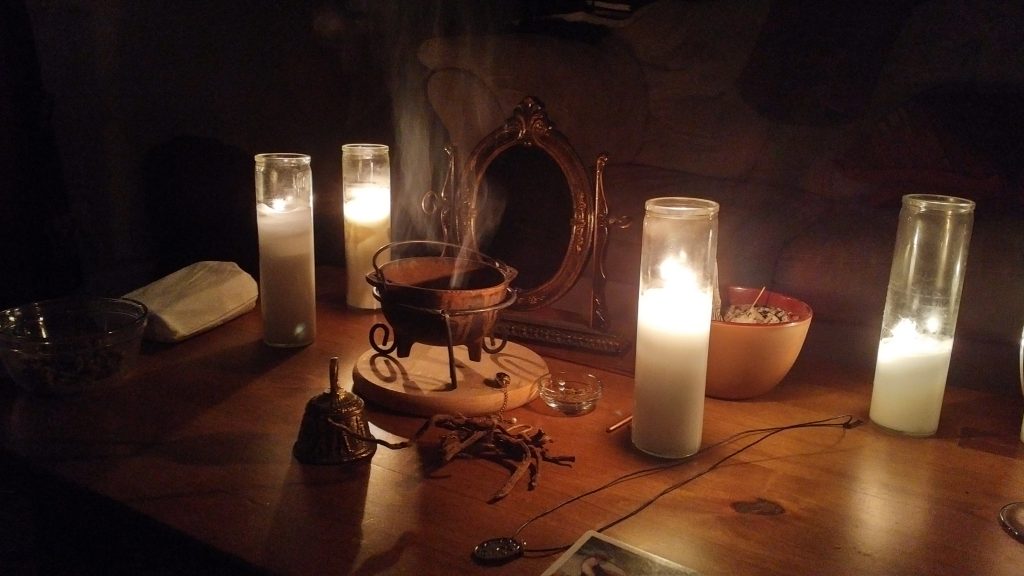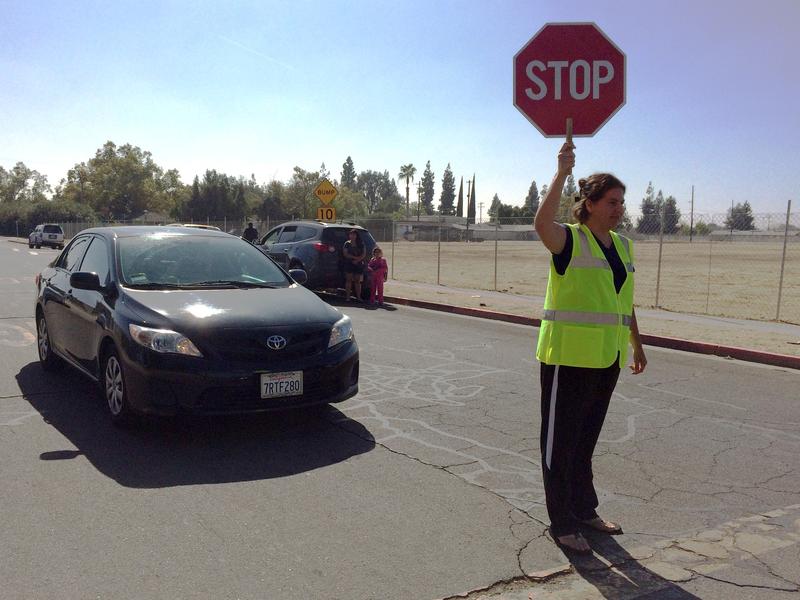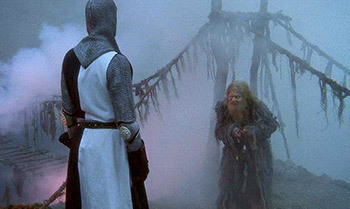
First post on a new platform! I’m taking some time with this one, as a magical act to set the tone for this blog. These are some of the thoughts I have around ethics, that will hopefully guide me forward.
One hallmark of different cultures around the world is the ways they teach people how to behave appropriately. What is appropriate — and what is not— is relative to the group. This can be seen in simple cultural differences, such as taking your shoes off in a Japanese person’s home (or not, in an American person’s home). Sometimes these values come from religion, sometimes from the social group, sometimes the town or state a person lives in.
Modern Neopaganism, however, seems to be lacking in any kind of central code of behavior. For example, some Pagan groups value inclusiveness as most important; others, discernment; others, tradition. I’d like to dig in a little on the reasons different Pagans have different values, and where those values come from.
I’d also like to challenge the Pagan community on our ethical practices. Where do we get our ethics? Are our actions coherent with our ethics and our beliefs? What’s the source for our ethics, if we reject certain compilations of stories from the Middle East?

On comfort
One of the mainstays of many Pagan books is to tell the reader “do what feels right,” or “do what feels comfortable.” This suggests that your intuition should be your primary guide, and that it will tell you whether a practice is “right” or “wrong.” (I put “right” and “wrong” in quotes, because what’s right for one person might be wrong for another.)
(Quick side note: Anytime you find a “should” or an “ought to,” you’ve probably found ethics. Note the “should” in this example of “doing what feels right,” which offers a model for our behavior. Looking for the “shoulds” and “ought-tos” will help, if you’re new to ethics.)
I’m not entirely sure where the suggestion to “follow our intuition” came from. It feels New-Agey, or it may be a spiritual offshoot of the Hippie movement. In some respects, this is great advice. Discomfort can be an important indicator of danger or threat. So if you feel uncomfortable doing the Great Rite with some old dude who swears you’re The Chosen One™ you should probably listen to that.
But in terms of life experience and personal growth, it’s a little more complicated than just whether or not you’re comfortable. If you’re always comfortable, you’re not growing. (For example, if you’re always sitting on your couch eating potato chips, you may be comfortable, but your overall health and fitness is not growing.) And sometimes we need to challenge ourselves — and our comfort zone — in order to check our bias, to learn something new, or even to have an authentic conversation with someone.
I haven’t found a precise way to differentiate between “this might hurt me” discomfort, versus “this challenges me” discomfort. My yoga instructor used to say, when leading us deep into a pose, that we should listen to our bodies. He told us that if our body says “I can’t” it’s usually wrong, and we should push deeper. But if our body says “I shouldn’t,” that’s usually a sign that we’re about to do some damage, and to ease off. I’m not sure there’s a better way to explain the difference, but I strongly encourage you to figure out for yourself what’s helpful discomfort, and what’s unhelpful discomfort. Living in this world involves dealing with some degree of it, and life goes much more smoothly if you can tell the difference between them.
So – should a conversation about ethics be comfortable? Maybe. Probably not. These are tough, sticky, nuanced issues, and a lot of times there aren’t any easy answers. In reading this blog, you might find yourself challenged and uncomfortable. There may be ideas or concepts that you find outrageous or unacceptable. Your inclination may be to appeal to some authority to silence me, by labeling my words something socially abhorrent (such as “hate speech” or “promoting rape culture,” which is not my intent, but of which I have been accused).
But we can’t really talk about things unless we can talk about them. Plus, if you believe that having a conversation – or even mentioning a particular word – is dangerous or traumatic, you’re investing that topic or word with an awful lot of power. It can take on a life of its own, like the Hebrew golem.
I’m approaching this as a good-faith discussion about difficult topics. I’m considering it to be a dialogue, or at least an invitation to think about issues, but not as a sermon. My goal is to reduce the amount of suffering in the Pagan community, and to help reduce the amount of bad information, toxic beliefs, and self-delusion in Paganism.
If that sounds kind of Buddhist, yes — Buddhism has a very strong influence on my philosophy. I haven’t found a better system of practice or ethics, and I feel like Buddhism offers a robust and well-tested system for addressing ethics. (I’m not the first person to stumble on the way Buddhism informs Paganism; you can find more here and here.)
So. If you find yourself distressed about the things I write, I encourage you to sit with those things for a little while and explore why they bother you. Remember, they are words. Though words have power, you have control over the degree to which those words affect you. Also, you’re welcome to challenge me or initiate a discussion. Sometimes I make incorrect assumptions, or my logic may be faulty, or I might not be aware of the details of a situation. (I mean, I’m human. Like you.) If you find yourself rendered incapable of functioning by this blog, it might be worth sitting down with a counselor to discuss more effective coping strategies for a stranger’s words on the internet.

Where do Pagans get our ethics?
If comfort isn’t always an accurate measure for determining whether an action is right or wrong, then what is?
As a Pagan, my instinct is to turn to Nature for inspiration. I can look out my front window at my big old Maple and watch the buds bloom in the spring, and the leaves fall in autumn. I can watch seed pods helicopter down on a calm, sunny afternoon. I can relate those to the cycles in my own life, whether it’s seasonal depression, or the cycles of productivity and rest. I can look at how seeds germinate in my garden and grow to produce fruit and vegetables. I can watch squirrels play chase around the trees, and compare it to the way little humans like to run and chase each other around.
But Nature seems to be a rare source of ethics for most Pagans. I suspect a lot of Pagans get their ethics is from political and social circles. For example, West Coast Pagans tend to place high value on inclusivity. This is evident in the Pantheacon’s recent decisions to favor inclusion of transgender people over women-born-women.
I’m not intending this as judgment of either Pantheacon or the Red Tent Temple group. My position is, in general, that private groups are free to operate as they wish, so long as no one is being coerced or harmed. (By “harmed,” I mean a physical injury that requires medical attention, a psychological trauma that results in therapy, or a legal matter in which a judge pronounced a legal decision.)
Rather, this is to acknowledge that there was a conflict (between transgender people and the Red Tent Temple group), and a decision was made based on the values of the presiding organization (Pantheacon). I don’t think there’s any argument that the Red Tent Temple offers a valuable and important function – they absolutely do! But that function is not compatible with the wishes of the Transgender Pagan community at Pantheacon.
In this example, the organizers of Pantheacon made their decision based on their core values. They decided that inclusiveness of transgender people is more important than a private space for women-born-women. That value seems to derive from the liberal left side of the political divide, with its highly-publicized safe spaces and inclusiveness. I don’t think we could find a case in Nature in which females were excluded from a group in order to welcome non-binary-gendered members of the species, so it seems that Nature is unlikely to be the source for this particular ethic. (Though if you know of one, let me know!)
A similar case of politics dictating values could be made about conservative Pagans. I’ve always figured most Pagans would tend to be liberal, because liberals are usually on the side of social equality (women equal to men, and goddess equal to god), and of religious liberty (equality for all religions, not just Christianity). Not to mention, liberals tend to be environmentalists, and what’s more Pagan than protecting and honoring the environment? But I’ve met many Pagans in my area who are, in fact, conservative. They value things like going out in Nature to hike, to camp, or to hunt. They often own guns. To them, Nature is an awesome force, and humans have very little power in comparison. They hunt as a participation in the cycles of Nature, just as powerful predators like wolves and eagles do.
Try and talk to a conservative Pagan about environmentalism though, or about social equality, and they tend to spiral into a condemnation of tree-huggers, communists, and government. Like liberal Pagans, conservative Pagans’ values are shaped by their political views, and to some degree by the experience they’ve had in their lives. They are much more likely to advocate personal responsibility, agency, and competition. They tend to be suspicious of government, regulation, and bureaucracy.
Again, this isn’t intended to be promoting or condemning any one path or another! Rather, it’s to illustrate the ways that a person’s upbringing, culture, and other life experiences can shape different ethical values. And how deeply those outside ethics can affect the decisions we make for our Pagan practice.
As far as my own ethics, I mentioned draw a lot from Buddhism. I also draw inspiration from Greek and Roman philosophers, among whom are some of the greatest thinkers humanity has produced. When those don’t offer a clear answer, or when I wish to add a Pagan flavor, I tend to look to Nature for guidance.

On Nature
Many human behaviors can be mapped out in terms of the narratives that play out in Nature. Like my tree and garden metaphors above, those narratives can be good and helpful.
But Nature can be a dick. Sexual predators — and note my use of the term “predator,” referring to a specific relationship in Nature — very closely mimic the behavior of predatory animals, such as leopards. They camouflage themselves by using pro-social behavior to disarm watchful eyes. They single out their prey to commit crimes away from the group. Their actions benefit themselves at the cost of their victim’s health, like a leopard pouncing on a gazelle.
So there’s a reason we use the term “predator.” Clearly, in this instance Nature is not a good source for inspiration for ethical behavior!
But what about the job market? Suppose you really want to work at Ye Olde Witchcrafte Shoppe. Maybe you can engage that goal in the same way a predator would. You could sharpen your interviewing and job skills, the way a leopard sharpens its claws. You could single out the job you want, and position yourself in a way to maximize your odds at capturing it. You could enhance your appearance and qualifications, so that you get the benefit of the job instead of another candidate.
In today’s job market, this would be an excellent strategy. So being a predator isn’t necessarily always bad. It might feel wonky to take that job away from someone else. (At least it feels a little wonky to me.) But is it wrong, or is it just life? I’m not sure there’s an easy answer. Sometimes, even when Nature is an asshole, there are still ways that we can find meaning and value in the lessons.
What about when Nature has zero redeeming qualities? Like the caterpillar wasp who injects its eggs into live caterpillars. (Which then eat the caterpillar alive from the inside out. Yech.) Is there anything redeeming about them?

http://www.nhm.ac.uk/discover/body-snatchers-eaten-alive.html
Well… there might be, if trees being eaten by these caterpillers give off chemicals that attract the wasps. In that context, the wasps are actually saving the trees.
The only real ethical value that I’ve found using Nature as a source, is that “it’s probably more complicated than you think.” Which, if you think about it, is a pretty decent basis for a discussion on ethics. The wasp, which we first consider to be an asshole, becomes a hero that rescues plants. The predator, which we consider to be an asshole for eating Bambi, is a great role model when you’re hunting for a way to feed your family.
Adding more information to a discussion can help. Nature is a complicated web of inter-dependencies, and adding more information usually helps us get some context for what’s really happening. And context is really what it’s all about, right? Excluding sexual predators from a group might be a good thing, if it’s framed in terms of protecting vulnerable people. But it might be a bad thing, if it’s framed in terms of excluding people who need community support to avoid recidivism. (Personally, I don’t think including sexual predators is ever a good thing. But I’ve heard the other argument. My perspective is, you do you, but I won’t join a group that welcomes sex offenders.)
Complexity, however, leaves the door open for people to use rhetoric to persuade others, simply by changing the story. We might say we favor the innocent, like little rabbits out in the desert happily living their bunny lives. Or we might favor the coyote, who has his own family to feed (on rabbits), and without whom the rabbits would overrun the desert and gorge themselves to starvation. Which one is right? It all comes down to context.
And maybe that’s the point. Who’s right depends on who’s telling the story. And the simpler and easier the story, the more effective it is. So care must be taken when looking to Nature for ethics, so that we’re not implying something we don’t mean. And so that we’re not somehow making the worse case appear to be the better.

On narrative and story
One thing about Paganism, is that there are a lot of different stories going around. Not just in the “he said, she said” sense, but in the Celtic-Norse-Greek-mythological sense. However, these are very different cultures, with very different values and ethics.
Narrative — especially mythological narrative — has the power to inform and change the ethics and values of a particular cultural group. The story of Thermopylae, in which 300 Spartans defended their homeland against the armies of Xerxes, promotes a certain set of values. The story of the recovery of Thor’s stolen hammer, with its cunning cross-dressing, praises a different set of values. These values tend to seep into a cultural group and provide templates for people to define what’s “good” behavior. (And what’s “bad” behavior!)
As Neopagans, or generic Pagans, we don’t really have a cohesive set of stories to guide our beliefs and actions. Yet some of us have internalized values from various other sources. Maybe we rely on stories from our baby steps as a Pagan, such as the stories of “the burning times” seen in many Wiccan texts (which are often *ahem* flexible in their historical authenticity). Or we might bring values from the generic “new age” movement, such as feminism, equality, light and love, and so forth.
Very few Pagans seem to spend much time digging into the stories that inform their values, let alone their meanings or their implications. For instance, many Pagans follow a Goddess and a God as representations of the generic male and female principles. Often, the god takes a form of a “horned god,” without too many more details. This God might be represented as Pan, with his goat legs and flute. Or it may be the Celtic Cernunnos, with his antlers. This deity is often honored as a generic masculine force, representative of the male half of divinity, just as the goddess is representative of the female half of divinity.

Malene Thyssen, http://commons.wikimedia.org/wiki/User:Malene
But let’s dig into the symbolism a little, and look a little more closely at Cernunnos. We know he’s a Celtic God. We don’t know much else, although some Pagans are having direct experience with him. The references we have to Cernunnos are pictures, which show a human male with antlers. On the Gundestrup Cauldron, he is shown sitting among various animals, holding a torc and a serpent. For the sake of discussion, consider that Cernunnos is a human blended with a male deer, based on the depictions we have found.
We can make some assumptions about Cernunnos based on these images. Because he is part man, part deer, we might say that he embodies qualities of both human and deer. One of the most noticeable aspects of deer are their mating habits; male deer maintain a “harem” of females, and fight other males for dominance and the right to mate with those females. Combined with his human traits, we can imagine that Cernunnos is a humanoid male who embodies the deer-like qualities of combat and competition between males, and sexual conquest of multiple females.
Now, if you read some of the blog posts from Pagans about sexuality, consent, and trauma, you might believe that many Pagans want nothing to do with the kind of sex represented by a deer-man-god. I see this as a good thing, and I’m glad Pagans are speaking out about abuse and coercion, and are working to improve consent culture!
But measured against what little imagery I can find on Cernunnos, I find this to be a contradiction. People are worshiping — or at least honoring — a deity that seems to be at odds with their values on sexuality. The only way I can think to reconcile this, is that many Pagans haven’t actually stopped to think about who Cernunnos is. (Or who any horned god is.)
Granted, this oversimplifies the issue. I’m sure that there are exceptions, and it’s not my intent to mischaracterize anyone. I’m also not acknowledging the nuance inherent in the variety of Pagan practices. My point in oversimplifying the issue, is to invite Pagans to question whether we are coherent with the narratives and mythologies that we practice.
One way to be more authentic is to start telling better stories. We might demonize (heh heh) a deer-antlered deity for being too rapey, and instead make the protagonist of our stories and myths to be an animal that fits better with the values we want to promote. Perhaps wolves, since they are reputed to mate for life?
(Although, come to think of it, I’m not sure the mating habits of any non-human species include enthusiastic consent. Typical mating behavior includes males initiating sex, and females either accepting, or evading them/fighting them off. I’m not sure what to make of that. If you know of animals that practice enthusiastic consent, let me know, because I’d like to start promoting it as a core Pagan value.)
We can be more authentic with our stories and myths by challenging and improving them. Narratives have a deep power of symbolism. Here at the relative beginning of Neopaganism, we have the opportunity to be intentional with our stories and symbols. If we just accept the default ethics and values we inherit from our social circles, from other Pagans, or even from our daily lives, then it’s hard to complain when those narratives and symbols promote behaviors that we don’t want.

http://kvpr.org/post/there-s-lot-crazy-drivers-city-advocates-take-aim-fresno-pedestrian-safety
On being right, and being affected
These days, it seems like everyone with an opinion wants to be right. There’s a sense of self-righteous justification for everything, from sexuality to behavior to appearance. I believe this comes from the polarization of American society, and it’s seeping into Pagan space.
However, the need to be right is not the most effective way to navigate social relationships.
This is not to say people should have to justify who they are or what they do. (Unless you’re hurting people, and if you are seriously knock it off.) I am stubborn, contrarian, and fiercely independent, and I can relate to the impulse to resist pressure to conform.
But some of this pervasive need to be right — perhaps better described as self-righteousness — is problematic. We, especially those of us who fall on the political left, have become accustomed to fighting for our right to be heard. And we’re forgetting that other people have that right too. We’ve gone so far trying to make people behave in a way that protects the marginalized, that I’m not sure we’re still the “good guys.”
For example, when I enter a discussion trying to make someone change their mind, without bothering to consider what they think or believe, I come across as the asshole. It’s much like an Evangelical preacher lecturing you about how you’re an awful human being unless you do things the “right” way. (Meaning the Evangelical way.) How many times have you changed your mind, because someone yelled at you and said you were Hitler? Or “of the devil?”
I’m guessing none.
I think digging in and resisting is fundamental in human behavior; most of us don’t like being told what to do. (At least I don’t. Maybe you do, and that’s OK.) My sense with Pagans, though, is that we tend to reject that approach. I mean, how is it any different if it’s a woman preaching to a man about how he’s bad and wrong and part of the problem (because of while male cis-gendered patriarchy privilege), than it is for an Evangelical preacher to sermonize about how women are bad and wrong and part of the problem (because of the Biblical original sin)? To me, those are exactly the same – only the class of the victim has changed. Someone is still being labeled “bad and wrong and part of the problem,” without regard to whether that individual is, in fact, part of the problem.
And no one is changing anyone else’s mind about it. In fact, labeling someone as “bad and wrong and part of the problem” is more likely to alienate a potential ally, than to persuade someone to join your cause. When I was accused of advocating awful things, when my intent was to promote equality and healthy boundaries, I felt rejected by my people. I suddenly wanted nothing further to do with the people who criticized me — even as an ally. (I’m still thinking and considering where my feelings are on this.)
There is a better way to bring people to your side. If we approach a conflict like a conversation instead of a fight to the death, we can engage the cooperative spirit in the other person. This requires that we be willing to listen to the other person, and try to understand the best version of what they’re saying. It also requires that we be willing to be affected by the things they are saying.
For example, here’s a 15-minute (and excellent) video by a woman who left the Westboro Baptist Church. I think we can all agree that WBC are not the good guys, in any sense of the word. But I haven’t seen very many people leaving, in spite of the outcry against them. In this case, it was strangers on the internet having genuine conversations that ultimately helped this woman find her way out.
Being willing to listen and be affected by someone doesn’t mean we have to ultimately agree! But every human being has a need to be heard and acknowledged. Genuinely listening to someone helps fill that need. It also sets a pro-social tone, and it models the kind of behavior we expect from others — which is that we are taking them as seriously as we expect them to take us.
If you think about it, one of the things we Pagans hate is being pre-judged by Christians because we label ourselves “Pagan” or “Witch.” (Or sometimes “atheist.”) How is it any different, if we pre-judge a person we’re talking to because they are Christian, or Republican, or straight-white-cisgendered? I feel like it’s the exact same behavior; only the class has changed. So logically, if we are behaving in the same way of people we are criticizing, our criticism applies directly back to ourselves as well.
Because of the variety of paths under the Pagan umbrella, I feel like it is essential that we learn how to coexist and participate with people we don’t 100% agree with. I see listening and being willing to be affected as the most effective path to have conversations with each other, and to develop a guiding set of ethics.

On trolls, bigots, assholes, and other bad-faith interactions
Has your dog ever snatched food from your plate without your permission? Like you just sat down to watch Game of Thrones with a plate of tasty bacon, but forgot your milk – and when you got back from the fridge, your plate was empty and doggo was licking his chops?
That’s a bad-faith interaction. It’s also Nature.
No matter what the rules are, some individuals are calculating whether the real-world benefits of bad behavior are worth the consequences. In that moment, your dog decided that a bite of tasty bacon was worth you being angry with him.
In the human world, the consequences for inappropriate behavior are usually social. Even sending someone to prison as a felon cuts that person off from their social groups and isolates them from society. It also marks that person in ways that make it more difficult to be socially accepted, or which limit their rights. These consequences are significant — usually impacting that person’s ability to get a job or find a partner. These consequences are intended to be a deterrent against inappropriate behavior, and for most people they work. (Though I do have a great deal of criticism for the US criminal justice system. I’ll get into that in another post.)
But in spite of the risk of prison/felony, some individuals calculate that the consequences (or risk of consequences) are acceptable to get the benefita of misbehavior.
For example. A person who has sex outside their partnership, without their partner’s permission, has decided that getting sex is a real-world benefit that outweighs the discomfort of their partner’s displeasure. A person who steals has decided that the money (or items) are worth more than the risk of being caught and punished. An able-bodied person who deceives the government to get disability benefits has decided that the benefit outweighs the social stigma and criminal consequences of committing fraud.
This is not to condone any of these behaviors, (nor to imply that disabled people are committing fraud!). But some able-bodied people do commit disability fraud. Likewise, many people do not have sex outside their partnership. But some do. They’re the ones I’m talking about.
It’s no different from your dog. You dog decides that it can live with you yelling at him, but at least he got a bite of your tasty bacon. These behaviors serve an important purpose in Nature. In the wild, a dog might have to dart in to a food source, snatch a few quick bites, and get away before a bigger dog can defend the food. A bear might frighten off a competitor in order to capture a food source (the way a bully frightens his victim). Nature has taught different creatures different but effective ways to survive in adversity, by selectively ignoring rules or consequences.
So there is a biological and evolutionary reason that people decide to break the rules. The cheater gets more sex, plus more potential offspring to pass along their genes. The thief makes a gamble that they’ll get resources without having to work. The bully discovers that inducing fear in his victims results in the desired behavior.
Ethics is about deciding, as individuals and as members of a group, what to do about it. Because these kinds of selfish behaviors erode the cohesion of a social group. In addition to one person getting a free ride while everyone else has to work, these behaviors also create resentment and distrust.
But consider. If a child grows up in a foster home, and has to compete with bigger siblings for food and attention, that child might develop some selfish and anti-social behaviors for survival. In that case — like the case of a starving person stealing bread — are these behaviors inherently wrong?
It seems to me that the appropriateness of an action depends heavily on context. The same response may be appropriate in one situation, but completely inappropriate in another. In a coffee-shop conversation, punching someone in the face is inappropriate. In a fight, however, punching someone in the face is appropriate. And vice-versa: in a coffee shop conversation, speaking civilly is appropriate; in a fight, a civil attempt at conversation is a liability. So part of our challenge is to take these impulses Nature gave us for dealing with situations, and apply them appropriately.
An appropriate response is usually one that’s in-kind with the invitation. So if unwanted attention is the problem, withholding attention from the unwelcome person would be in-kind. If words are the problem, then replying with words is in-kind. And so forth, unless there’s an escalation in the level of the problematic behavior.
Repetition of an offense usually counts as an escalation. So is increasing the effect on another person, like going from yelling to hitting. In general, initiating an escalation is inappropriate.
In Nature, most animals have some method of protecting themselves. Running away is a common tactic. Some will fight when attacked. Some animals will make themselves a target, in order to divert attention away from other members of their group. These are some of the mechanisms Nature has evolved to deal with assholes and takers. Again, the key is deciding which response is the most appropriate to a given situation.
As humans, no matter what punishments we put in place, there are still going to be people who are assholes, takers, or trolls. People who try to exploit others, who try to provoke or manipulate other people, or any other selfish and anti-social behaviors. Our police and legal system is one mechanism for dealing with these kinds of people. But the police can’t be everywhere, all the time. Not only that, police are often restricted from taking action without evidence that a law has been broken — so it’s wise for us to find other ways of protecting ourselves and our groups from assholes, takers, and trolls. This is where a system of ethics comes into play. It tells people what behavior is acceptable, and what happens to people who behave inappropriately.
Looking at this in terms of Nature — wolves, field mice, eagles, bears, salmon – none of these animals have police officers to deal with predators. If we’re modeling our ethics on stories from Nature, maybe it’s a good idea to consider the ways different animals deal with adversity as a source for our ethical behavior. (The mechanics for individual behavior are different from the way they work for a group. This post focuses on what we, as individuals, can personally take action on. A later post will examine the tensions between group-ethics and personal-ethics.)
A good guideline for dealing with assholes, takers, and trolls, is to assume that they are acting in good faith. They very well might be! And most interactions with people start (and end) with words, which cannot physically damage us. (Though words can be cruel and used to hurt, I’m organizing this along the lines of escalation of force.) But we should also keep an eye open for signs that the other person is actually acting in bad faith. If they lie or deceive, or take advantage, or behave in ways that break trust, then it’s appropriate to consider they are acting in bad faith. A healthy response to such behavior is to set boundaries, to physically leave the situation, or cut contact when they behave in a way that causes you distress.
Assuming that other people are acting in good faith helps preserve social bonds. For example, my anxiety causes me to be hypervigilant, watching for signs that someone will treat me badly. I know from experience that being constantly on guard, watching and waiting for someone to act in bad faith, tends to alienate people. Folks feel like I’m suspicious without reason, and that makes it hard to connect. And I tend to be over-reactive; if I’m always watching for bad behavior, I’m going to see it more often (even when it’s not intended).
On the other hand, being overly trusting creates an opportunity for exploitation. So it’s important to be able to turn the “bad-faith sense” on and off when you need it. Like the dog with the bacon, many criminals are simply opportunists. They wouldn’t go out of their way to rob a bank, but they might take a pile of cash if no one is looking. This is the principle behind locking your car doors, and keeping valuables out of sight. Or meeting Craigslist sellers at the local police station. Again – not your fault if someone hurts you. But you can reduce the risk of that happening by limiting the opportunity for someone to do so.
If you see signs that someone is acting in bad faith, even after you’ve tried to connect in good faith, it’s OK to set boundaries. This is pretty easy to do on the internet by simply closing a browser window. Or by unfollowing or blocking someone. In person, it can be as simple as ending a discussion by saying, “I see where you’re coming from, but I don’t think I’m ever going to agree with you.” Or “Let’s agree to disagree.” You can disagree with someone and still be friends or part of the same social group. You can also disagree with someone so strongly that you have to leave (or ask them to leave).
I used to have a pet bird named Goblin. She loved to get head scratchies — until she got tired of them. But she couldn’t speak words to tell me she didn’t want head any more head-scratchies. When she didn’t want them anymore, she’d nip at my finger. Not hard enough to draw blood, but enough to let me know she was done. She was setting a boundary with me. If you look, Nature is full of creatures setting and enforcing boundaries with one another. When a rabbit jumps and flees from you, it’s setting a boundary that it doesn’t want to hang around. When a dog growls and raises its hackles, it’s setting a boundary and communicating that it feels threatened by something nearby.
Humans are, by nature, social and vocal creatures. It is very easy to set a boundary with your words, by saying to someone, “Stop that, I don’t like it.” (Though society frowns upon biting or growling.) If the other person persists after you’ve used your words, they are probably acting in bad faith. That is, they want something from you, and are signalling their disregard for your wishes in pursuing it.
(Side note: if you cut ties or stop a discussion with someone who is acting in good faith, you are no longer the good guy. Using “the silent treatment” can sometimes make you the asshole. Likewise if someone asks you what they said that was offensive, and you blow them off with some variation of “If you don’t know, I’m not going to tell you.” Cutting ties and refusing to engage can be weaponized, just like any other behavior. The distinction lies in your intent; are you acting in good faith, trying to increase understanding and community, and to reduce suffering? Or are you acting in bad faith, twisting healthy social mechanisms to silence or dominate someone you disagree with?)
If the other person doesn’t respect your decision to disengage — in other words, they keep pursuing you — you can physically leave the place. Or you can block them on social media. When you cut ties, sometimes the best thing is to remove yourself from the situation. You can’t be hurt if you’re not physically present. You might feel like you have a right to be there, and you may be right! But are you willing to pay the price of being hurt in order to be right? A mouse might have every right to live in a wheat field, but if there’s a hawk circling, it’s wiser and healthier to make itself absent. Same goes for stepping out into a crosswalk in front of traffic; being right won’t pay the hospital bills if you’re hit, and won’t feel better than a broken leg.
If you remove yourself from a situation and the other person continues to pursue you, it’s appropriate to consider self-defense options. Pursuit might look like cyber-stalking, phone call harassment, showing up at your work, following you, doing things you’ve told them you don’t like or don’t want. Self-defense can be calling the police, using pepper spray, getting help from your social group, or even self-defense skills like karate.

Actions you can take, and setting boundaries
Have better conversations
Like I said before, we can’t talk about these things if we can’t talk about them. I define a “better conversation” as one where people talk about what’s really important to them. A bad conversation is one where everyone pretends to agree just to be polite.
That means having difficult conversations about emotionally charged topics. And the only way that happens, is by not shutting each other down when these topics come up. Since most of the shut-downs happen in response to our inner emotional reactions, each of us must take personal responsibility for figuring out and working through our personal biases underlying those emotional reactions. In other words, be the change you want to see, rather than yelling at other people trying to make them be the change you want to see.
We should also take responsibility for confirming that the information we’re using to make decisions is factual and accurate. And we should also take responsibility for our claims, arguments, and interactions with other people. It’s easy to throw blame on something or someone else, as the reason we do things. But authentic conversations only happen when we accept responsibility for ourselves.
Play “Switch the Class”
One way to start becoming aware of our unconscious biases and ethics is to play a game I call “switch the class.” I played this game with a co-worker once, who was spouting off about how gay people shouldn’t be allowed to get married. I switched it up, and asked him if it should be OK for Hispanic people to get married, or for Catholic people to get married. It’s ridiculous to try to stop those situations, so it’s also ridiculous to try to stop gay people from getting married. (He said “Huh, I never thought of it like that,” which I take as a win.)
It works the same for any group. If you find yourself saying “straight white men are the problem,” switch the class. Say to yourself, “Feminist lesbians are the problem.” “Poor black men are the problem.” “Robe-wearing Buddhists are the problem.” If the new sentence sounds ridiculous (or offensive), then you’ve discovered an unconscious bias in your original statement.
Once you know your biases, you can work on them. You might catch yourself when you say something offensive, and apologize. Or you might take a moment to consider how a situation is more complex than it seems. This helps you become more willing to listen and be affected by others. The goal is not to be perfect, and perfection is an impossible standard. Rather, the goal is to get better, to grow, to keep improving.
(Side note: If our ethics say that “Stereotyping is bad,” then all stereotyping must be bad, or we’re incoherent and condemning our own behavior. So if we’re trying to break stereotypes such as “Women are lousy drivers” or “Black men are lazy,” then we must also acknowledge that statements like “Straight white men are the problem” are stereotypes, and are just as problematic. A better, more mindful approach is to condemn behavior. “People who use power to coerce other people are bad.” That can apply to anyone, regardless of gender or skin color, and is — in my experience — true.)
Be more self-aware
Another helpful tool for developing our ethics is to cultivate awareness and responsibility for our own behaviors. By this I mean be aware of how you treat others. Also try not to commit the actions you condemn in others. This applies especially to people who use a condition (neuro-atypical, mental illness, disability, etc.) to excuse inappropriate or harmful behavior. While certain conditions can qualify a person for protected status or accommodations, those conditions do not function as a free pass to behave in a way that causes other people harm or distress. It does not matter if you have depression, anxiety, a disability, or anything else — you are still responsible for your behavior. If you act inappropriately toward someone, that person is not obligated to tolerate your behavior.
So if my anxiety causes me to act like a jerk toward you, my anxiety is not an excuse for my bad behavior. You shouldn’t be forced to be uncomfortable with my inappropriate or harmful behavior simply because I have a condition. And you are free to set boundaries, telling me what behaviors you will and will not accept. It’s my job to manage my words and behavior to respect your boundary. If I don’t improve, I shouldn’t be surprised if you leave or cut ties.
I have seen psychiatric conditions used as tools to dominate or coerce other people; others may (rightly) set boundaries so they are not adversely affected by this behavior. For example, my ex-wife used her condition of co-dependency to justify her poor treatment of me. When I set boundaries, she became verbally and emotionally abusive. I’ve seen people with autistic children use autism as an excuse to not have to prepare for/contribute to Pagan events. Worst are the memes that claim that “if you can’t handle me at my worst, you don’t deserve me at my best.” Nope — you may have depression or anxiety, but I don’t have to tolerate you being an asshole (or a taker, or a troll).
Set boundaries
Because most of these things are happening in the realm of words and conversations, our most effective tool is our words. We can use words to set healthy boundaries. Setting a boundary is not rudeness, discrimination, intolerance, hate speech, or anything of the kind.
(As with most issues, there’s some nuance here. Sometimes, people say things that are rude or discriminatory. Logically, though, all boundary setting is not rudeness or hate speech. Some boundary setting might be rudeness or hate speech. Acting like some is the same as all is problematic.)
If someone sets a boundary, be sure that you are not, in fact, behaving inappropriately. You might feel like they are being rude. But that feeling could very well be an emotional reaction to not getting the reaction you want. Our modern American culture teaches us to be afraid of being rude. We’ve normalized taking responsibility for other people’s emotions, which is an unhealthy (and impossible) standard to meet. An example might be interacting with a potential romantic partner. If they reject your advances, that is not “being rude” — that is setting a boundary. (A stranger has no obligation to manage your emotions.) Likewise if someone says “In this group, we don’t accept complaints without suggestions for improvement.” Again, this is not rudeness, but setting a boundary. (The group is setting a boundary that it is not an outlet for venting or therapy.)
A good way to identify whether someone is being rude or just setting a boundary, is to consider who is acting on whom. If I am doing something that only affects me, another person telling me “no” is being rude. If I am doing something that affects someone else, them saying “no” is setting a boundary. If someone else is doing something that affects me, if I say “no” I am setting a boundary. If someone else is doing something that only affects themselves, my saying “no” is rude.
Another way to identify whether something is rude or just a boundary, is to consider who has to do the work. If I beg out of bringing a potluck dish because of my mental illness, the rest of the group has to absorb the cost of those extra place settings. That creates extra work for other people, which is usually considered rude. If you’re making racist or sexist jokes, other people are required to do the inner work of not punching you for being an asshole. (And for perpetuating stereotypes that harm entire classes of people.) Creating that extra work (and discomfort) for others is considered rude.
Again, setting boundaries is not rude. It’s emotionally healthy. If you get angry because someone is setting a boundary, it’s a good idea to talk to a professional and do some self-reflection. A good place to start is with your expectations about who is responsible for what. A therapist can be a great resource to help in this process.
Tell better stories
Another way you can become more coherent and mindful of your ethics is to explore your spiritual path. Sit with the symbols, and think about what behavior they represent. Are those behaviors in line with your values? If you value a particular trait, but behave in a way that undermines that trait, that’s a sign that your beliefs, values, and behavior are out of alignment. If you’re working with a goddess of death and sorcery (like Hekate), but are preaching light and love, your values and your behavior might be out of alignment.
This works with stories and myths too. Do you preach peace and love, but hang swords and knives and velvet wolf tapestries all over your apartment? Might want to sit with those stories a little longer — wolves are vicious apex predators, and swords and knives are weapons for inflicting harm.
Are you preaching inclusiveness and fair treatment, alongside advocating murder and posing in a picture with a knife? (Yes, I have seen this.) Again — maybe time to sit with your stories and values, and get things into alignment.
Find the stories that illustrate your ethics. Focus on telling, retelling, and acting out those stories. It doesn’t matter if it’s classical mythology, or just stories from Nature. Spend some time with these tales, and make sure that they’re not saying something you don’t mean. Tell those stories to your group. Act them out in plays. Memorize them. Internalize them. Identify with the characters, and learn how those stories teach appropriate behavior. Those stories will weave themselves into the tapestry of your personhood, and of your social group. They will become part of your identity, and provide a non-conscious, automatic system of ethics to guide you when you’re feeling lost.
Final thoughts
Remember that ethics is complex, sticky, and nuanced. Very rarely will a situation distill down into a simple aphorism or phrase. Including this post; I’ve clearly oversimplified a few things. I freely acknowledge that they are more complex than perhaps I have portrayed them!
Sometimes, a simplified narrative will be in conflict with someone else’s narrative, and we’re each responsible to figure out how to deal with that — without dominating or coercing the other person. (Unless the narrative itself promotes coercion or harm.) Remember it’s probably more complicated than it seems. Try adding more context, and see where that takes you. Or challenge the narrative, and have an honest (and civil, and rational) discussion around it.
Realize that you might be the one who’s acting like a judgmental asshole, and not realize it. Try to become aware of your biases. Work on listening to and being affected by other people.
People often have strong emotions tied up in their values, and these emotions can cause people to defend their values vigorously. Again, listening and being willing to be affected by other people will help you have better conversations. This will help you move towards a real sense of community.
Listening to someone doesn’t necessarily mean agreeing with them. Rather, it means we see them as an equal human being, and we take them as seriously as we want them to take us. Even the people you hate are human beings, with loves and biases and concerns and strengths and flaws.
We aren’t being very ethical if we’re committing the behaviors we are condemning in others. Sometimes we don’t realize that we’re doing it. It’s helpful to check in with our statements and beliefs to make sure the’re in alignment. It’s also helpful to play “change the class” when we’re making broad statements, to see if we’ve got an unconscious bias that we might not be aware of.
What are your thoughts? Do you have a preferred source for deciding what’s right and wrong? Have you ever changed your ethics? I’m interested to hear your stories in the comments!
